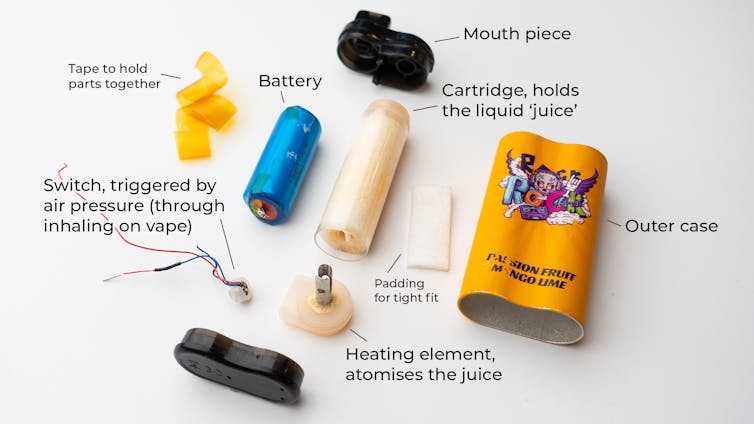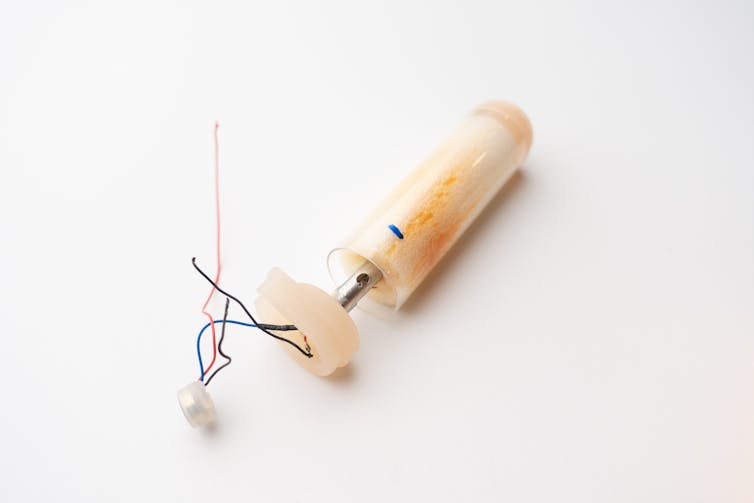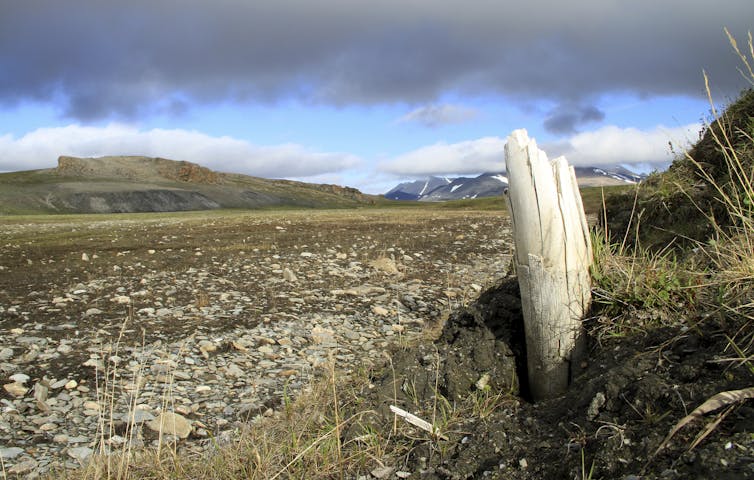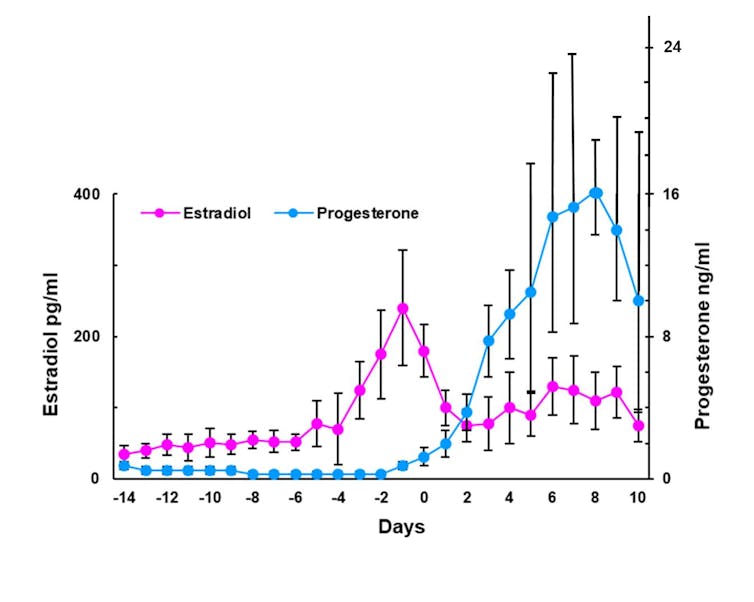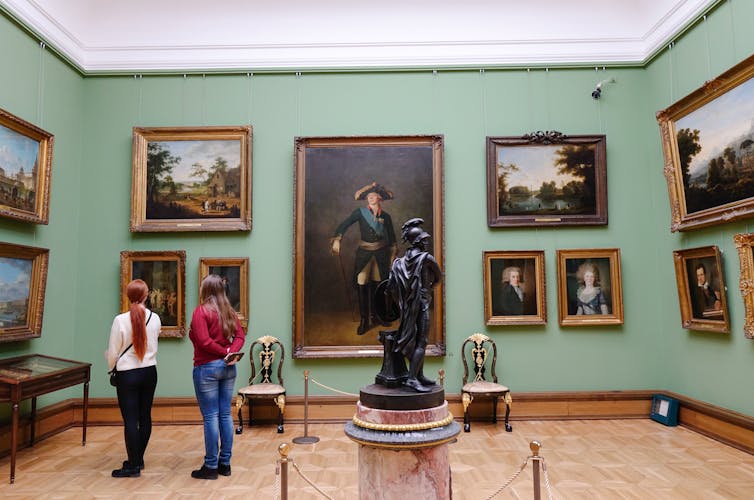Honey bees vote to decide on nest sites – why we should listen
When people think of honey bees, they often think of classic wooden hives, in which beekeepers are having to breed more and more bees just to keep managed populations stable. These man-made boxes, designed to facilitate pollination and honey production in an era before animal welfare was considered, are the hives in which scientists study honey bees.
However, these boxes have little in common with the wild nests that featured in honey bee evolution. Are we are missing something from the evolution of wild bees that might help managed bees today?
Honey bees, originally a tropical insect, colonized cold climates 600,000 years ago by evolving complex behaviour patterns for finding and selecting nest cavities in trees.
Swarming honey bees send out scouts to find suitable nests, measure them for fitness against a list of criteria such as height off the ground, volume, entrance size, and entrance location. They communicate this information to the rest of the scouts. Then the scouts engage in a voting system to select the best one and move the entire swarm sometimes over a kilometre to the new nest.
This tells us that these nests were not that common, even 600,000 years ago. However, the survival advantages warrant investing enormous amounts of energy in finding them.
Disease, predators, parasites and climate change are threatening the future of managed honey bees, pollinators of our food crops. Yet research into these pressures and honey bee behavior rarely takes account of the nest preferences of honey bees shaped by evolution.
For example an international survey of honey bee losses conducted by the Federation of Irish Beekeepers has only three yes/no questions about hives and bee research has no methods or standards on how to evaluate the quality of hives, in contrast to the elaborate measures taken by the bees themselves.
Have we, by putting honey bees into boxes for our own convenience, prevented bees coping with these pressures? Do the bees’ elaborate nest-choosing suggest strategies to help protect them?
One way to answer these questions would be to quantify the physical properties of man made research hives, in relation to the preferences of the honey bees and the context they evolved in. This would mean we could give a hive a scientifically based score relevant to the long term survival of honey bees. It would also form a basis for researching whether human built hives are helping or hindering the honey bees.
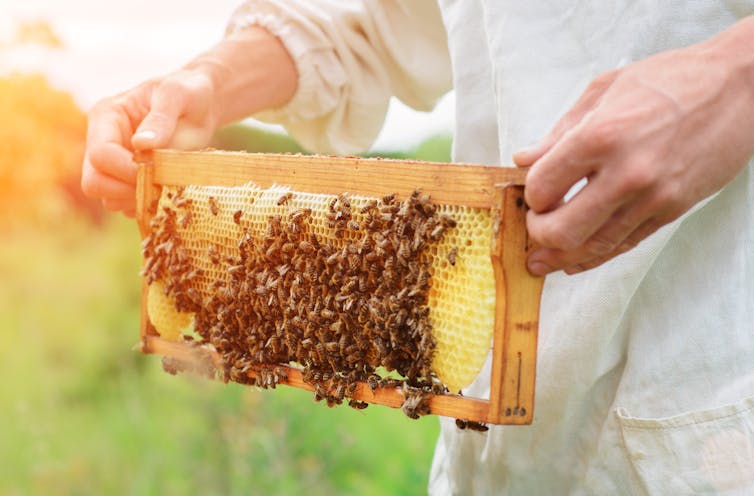
Do we make hives that are best for bees or ones that make life easier for humans. Kosolovskyy/Shutterstock
My research used the science methods more commonly used for aerodynamics and building simulations (computational fluid dynamics or CFD) and quantified the heat loss differences between hives and the nests honey bees vote for.
Heat retention is important for honey bees as they need to keep the internal temperature of part of their nest above 20°C all year round and part of it close to 34°C for most of the year.
My findings show the tree nests lose substantially less heat than the conventional hives used by researchers. My study also used CFD to visualize the air flows inside both tree and hives, which showed that the internal air circulation within the hive is of substantially different type to that inside the tree nest.
In addition the study has shown that features of man made hives inserted for the beekeeper or researcher’s convenience to easily insert and remove frames actually increase heat losses substantially.
Why has this not been done already?
In the 1930s, all sorts of hive experiments were conducted. By the 1940s, scientists concluded that different hives made little difference to bees. Thus the baseline for research, that hive characteristics could be ignored, was set.
However these experiments did not quantify key physical characteristics (such as heat loss), or determine if the experiments actually changed much physically inside the hive, or measured how man-made hives related to the preferences of honey bees. It was only in the late 1970s that research was carried out into honey bee nest preferences and then later around 2003 into the way honey bees seek out new nest locations and vote for them.
This knowledge about nest preferences and seeking has had little impact on hive based research, probably because the doctrine “hives make no difference” was well established. This means today, as in the 1950s, research does not take into consideration key physical characteristics of the hive nor place them in context with the honey bee preferences that have evolved.
The differences between the hive and the tree nest are so stark, it does call into question whether some research is really about the bees or the bees coping with us.![]()
Derek Mitchell, Researcher in Mechanical Engineering, University of Leeds
This article is republished from The Conversation under a Creative Commons license. Read the original article.



